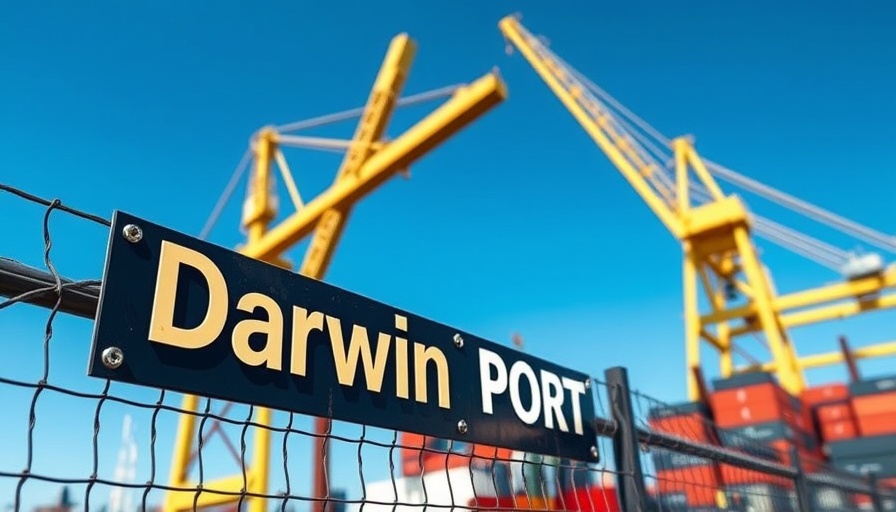
China Critiques Australia's Darwin Port Ownership Plans
In a recent statement that has stirred diplomatic tension, China’s ambassador to Australia, Xiao Qian, criticized the Australian government’s plan to end the 99-year lease of Darwin Port to Chinese firm Landbridge Group. Ambassador Xiao argued that punishing the company for its investment contradicts the spirit of mutually beneficial economic relations.
The Background on Darwin Port’s Ownership
The Darwin Port was leased to Landbridge Group in 2015 during a time of diplomatic unease between China and the U.S., underlining the strategic significance of the port for military exercises involving U.S. forces. Prime Minister Anthony Albanese has stated that reclaiming the port supports Australia’s national interests, invoked during his campaign promises. This shift in ownership is bolstered by national security concerns intertwined with international investment dynamics in a sensitive geopolitical landscape.
Ambassador’s Arguments: Investment and Economic Contribution
In his remarks, Ambassador Xiao emphasized the contributions made by Landbridge to the local economy, which he claims should be regarded positively instead of through the lens of political tension. He posed ethical questions about taking back a profit-making asset from a company that had invested heavily to turn around its fortunes, implying that such actions might set a precarious precedent for foreign investments across Australia.
The Broader Implications of Ending Leases with Foreign Companies
This situation highlights broader themes within international investing and economic cooperation. Policymakers face the challenge of balancing national security needs with the benefits derived from foreign investments. Such discussions have sparked debate over the appropriate limits of foreign ownership in critical infrastructure—a topic of great concern not just in Australia, but globally.
How This Affects Local Investments and Real Estate Strategies
The debate regarding the Darwin Port ownership could have ripple effects on the Australian real estate market and investment strategies. Investors often look for stability and clarity in ownership to make sound decisions. A shift toward patronizing domestic ownership, especially in infrastructure, could affect real estate investing and how businesses and foreign partners perceive Australian markets.
Potential Future Scenarios
Should the Australian government pursue the handover, more aggressive moves could sour future relationships with China and other foreign investors, leading to a significant impact on the economic landscape. Future predictions suggest that similar nationalistic moves could catalyze increased demand for domestic stocks and local investments while influencing investment strategies centered around risk management.
Conclusion: Navigating the Complex Landscape of International Investments
As Australia navigates this challenging situation, the implications for international investors and federal policies will become increasingly significant. Navigating the complex web of international relations and investments is crucial for both current stakeholders and potential investors taking a step into Australian markets.
 Add Row
Add Row  Add
Add 



Write A Comment